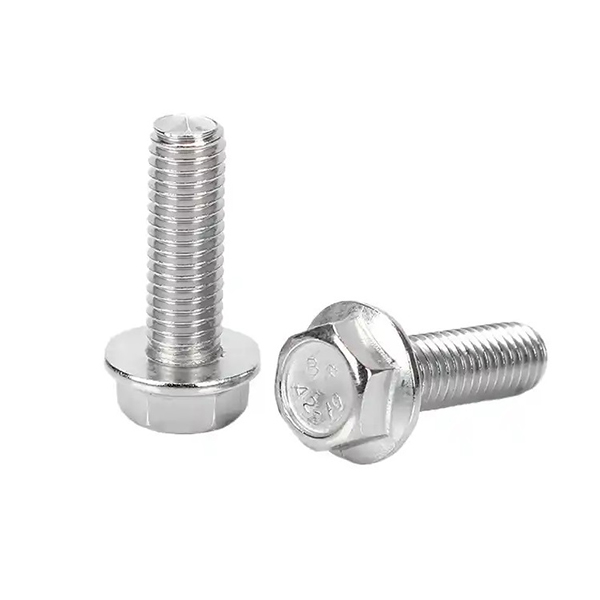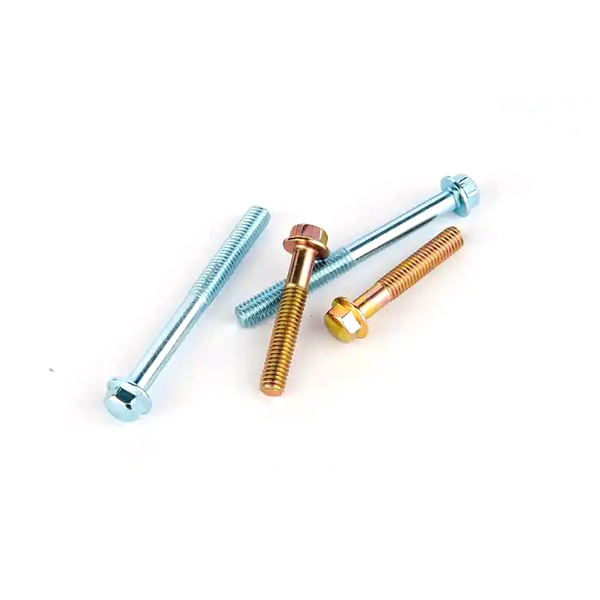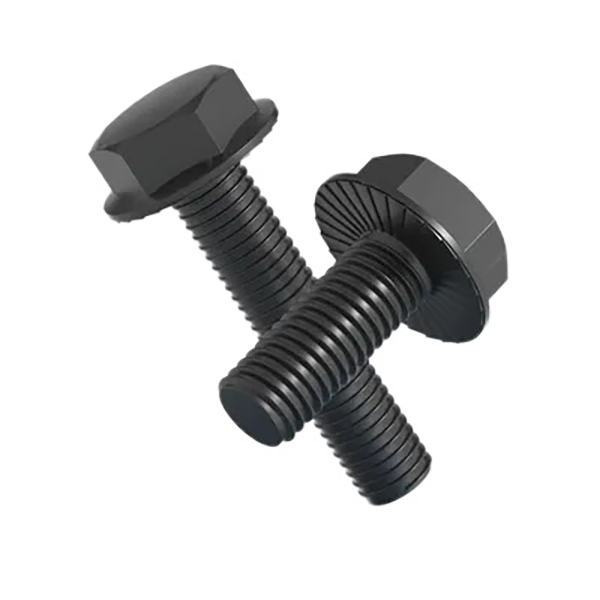Flange bolts are characterized by a skirt or flange that extends outwards from the head in a 360-degree angle. This flange serves to distribute the force evenly over a larger surface area, which is particularly beneficial for maintaining a secure grip and preventing the bolt from loosening.The flange effectively acts as an integrated washer, ensuring a tight seal and even load distribution.
Advantages
Flange bolts offer several advantages, including torque efficiency, resistance to vibration and loosening, and corrosion resistance and durability. They excel in high-vibration environments due to their ability to maintain a secure hold over time, and the increased friction between the flange and the fastened surface minimizes loosening.
Applications
Flange bolts are used across multiple industries due to their versatility and reliability:
- Automotive Engineering: They secure engine components, chassis parts, and suspension systems, maintaining performance under dynamic forces.
- Construction and Infrastructure: They fasten structural components in bridges, buildings, and industrial frameworks, providing stability and strength.
- Pipeline Systems: They prevent leakage and ensure secure connections in oil, gas, and water transport systems.
- Heavy Equipment: They anchor large components subjected to dynamic loads, such as machinery used in mining and agriculture.
Material Options
The selection of materials for flange bolts is critical to their performance, durability, and suitability for specific applications:
- Steel: Commonly used for its cost-effectiveness and high strength. Steel bolts are often enhanced with coatings like zinc plating or galvanization to improve resistance to corrosion and wear.
- Stainless Steel: Offers excellent corrosion resistance, making it suitable for marine and outdoor applications.
- Brass: Known for its durability, corrosion resistance, and electrical conductivity, making it suitable for electrical and electronic components as well as decorative applications.
- Carbon Steel: Used in demanding applications such as oil and gas pipelines and structural connections, with tensile strengths ranging from 600 MPa to over 1200 MPa.
- Specialized Alloys: High-performance alloys like Inconel, Monel, and Hastelloy are used in applications requiring superior resistance to heat, oxidation, and chemical exposure.
Installation
Flange bolts are installed using tools such as wrenches or ratchet spanners that can engage with the hexagonal socket or other drive options on the bolt head. They are designed for efficient installation and removal, which is a key advantage in applications requiring regular maintenance.
Industry Standards
Flange bolts are precision-engineered to comply with international standards such as ISO 4014 and ASTM F568, ensuring compatibility, uniformity, and safety in critical applications. These standards cover pressure-temperature ratings, materials, dimensions, tolerances, marking, and testing for pipe flanges and associated bolting.















